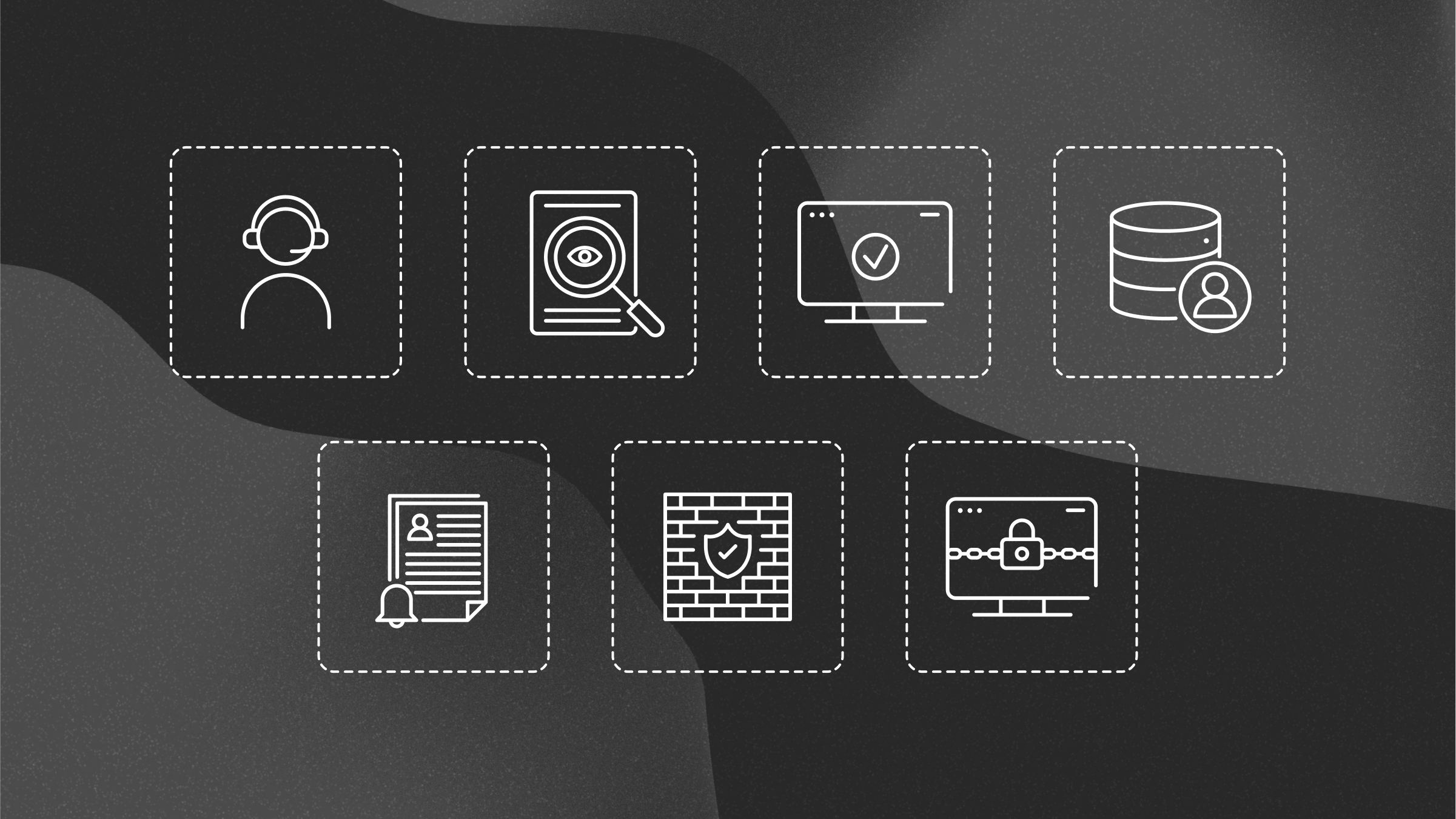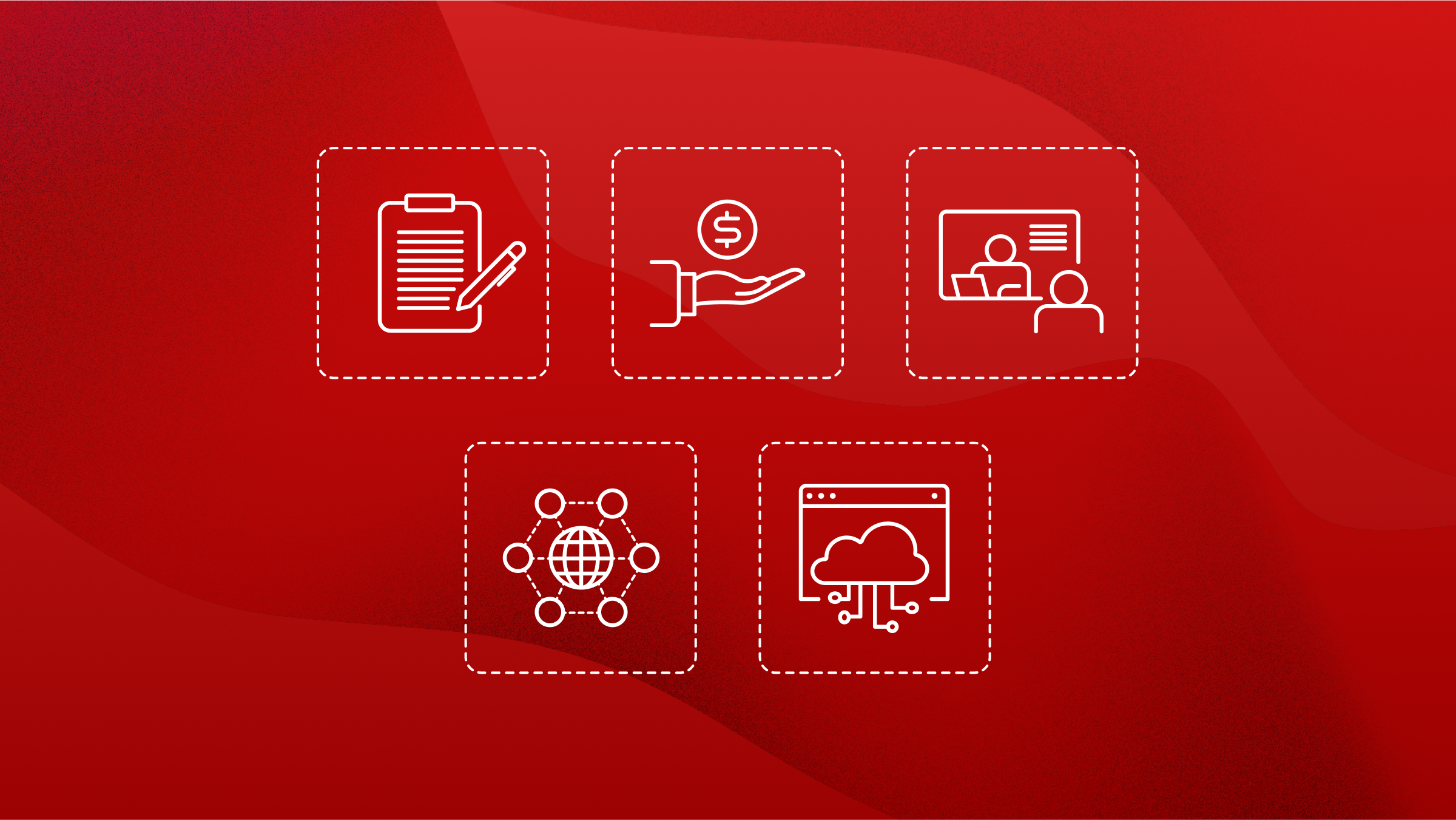Bill 25 Explained: Essential Guide for Quebec Businesses

Have you recently heard about Bill 25 in Quebec and wonder how it impacts your business?
You have a vague idea that it pertains to data privacy and security, but its precise implications for your company remain a mystery. How does it redefine your responsibilities regarding your clients' data protection? Do you need to revamp your existing protocols or initiate new measures?
If these questions resonate with you, you're not alone. Many business leaders find themselves in a dilemma over this new legislation, with the critical importance of personal information protection often eluding them. This lack of understanding can create gaps in their compliance strategy, unwittingly exposing them to the risk of violating Bill 25. It is, therefore, essential to decipher the ins and outs of this law and align with its compliance requirements.
The array of changes this new law brings may seem daunting. But don't worry! In this article, we will shed light on the grey areas around the main provisions of the new bill in Quebec and highlight the vital importance of personal information protection. We will also spotlight potential sanctions and the consequences of non-compliance with Bill 25. Finally, we will propose an action plan that your company could adopt to comply with this new law and ensure optimal protection of personal information.
[BLOG_POST_SUMMARY]
Introduction to Bill 25
Overview of Bill 25

Bill 25, officially known as the "Law Modernizing Legislative Provisions Concerning Personal Information Protection," is Quebec legislation aimed at strengthening the protection of citizens' personal data.
Bill 25 applies to all businesses operating in Quebec and addresses the collection, use, communication, storage, and destruction of personal information. It seeks to ensure that companies implement adequate cybersecurity policies and procedures to protect their customers' and employees' personal data while respecting the rights of the individuals concerned.
With the adoption of Bill 25, Quebec joins other Canadian provinces in their efforts to secure citizens' personal data. Like its counterparts across the country, this law reflects Canada's intent to create a safer digital environment for organizations and individuals. By equipping organizations with the necessary tools to defend against cyberattacks, these regulations aim to minimize the risks of data breaches and the associated costs, which can be significant, as recent statistics have shown.
In early 2022, nearly 60% of Canadian organizations were affected by ransomware attacks. These attacks led to the loss of more than 650,000 data records in just the third quarter of 2022 alone. Canada ranks third, following the United States and Middle Eastern countries, regarding the cost of data breaches. Data security breaches cost Canadian organizations over 5.6 million US dollars.
Therefore, it is essential for organizations, whether located in Quebec or the rest of Canada, to understand and apply these new laws to ensure the security of their data and comply with current standards.
The Objectives of Bill 25
Protecting personal information has become a significant issue for businesses due to the increase in cyberattacks and data breaches, as well as the growing expectations of customers and employees regarding privacy and information security.
Cyberattacks occur every 39 seconds. And the risks are increasingly damaging and can have negative consequences for businesses. Cybersecurity is essential for any business but vital for small businesses. 43% of cyberattacks target small businesses, which are often seen as easy targets by cybercriminals and have fewer resources to devote to cybersecurity. Additionally, 60% of small businesses go bankrupt after a cyberattack.
Therefore, Bill 25 was implemented to address the growing challenges in personal information protection in today's digital context. Its main objectives are as follows:
Strengthening the protection of personal information
Bill 25 aims to ensure a high level of protection for the personal data of Quebec citizens by establishing strict rules on the collection, use, communication, and preservation of personal information.
Holding businesses accountable
Businesses must establish internal policies and procedures to protect the personal information they hold and process. The appointment of a data protection officer is also required to ensure compliance and the proper implementation of protective measures.
Transparency and communication
Bill 25 emphasizes the importance of individuals' consent in processing their personal information. It requires businesses to inform individuals clearly and transparently about how their personal information is collected, used, and stored and their rights concerning access, correction, and deletion of their data.
Alignment with international standards
Bill 25 seeks to harmonize personal information protection rules in Quebec with those in force in other jurisdictions, notably the European Union and its General Data Protection Regulation (GDPR). This facilitates trade and cooperation between Quebec businesses and their international partners.
The Main Provisions of Bill 25

Bill 25 imposes several obligations on Quebec businesses regarding personal information protection. These obligations ensure companies adopt responsible and transparent practices when managing personal data. Here's an overview of the main provisions under Bill 25:
Appointment of a personal information protection officer
Businesses must appoint an officer to ensure compliance with Bill 25 and oversee data protection practices within the organization.
Impact analysis on personal information protection
Before implementing new projects, systems, or technologies involving the processing of personal data, organizations must carry out an impact analysis to assess risks to personal information protection and implement measures to mitigate them.
Informed consent from individuals
The collection, use, and communication of personal information are only permitted with the explicit consent of the individuals concerned. Organizations must ensure that these individuals clearly understand the purposes of their data processing and their rights regarding personal information protection.
Right to access, correct, and delete data
Bill 25 grants individuals the right to access personal information concerning them held by a company and to request the correction or deletion of their data if they are inaccurate, incomplete, or outdated.
Obligation to report security incidents
In the event of a security incident involving personal information, organizations must promptly inform the Quebec Access to Information Commission (CAI) and the people concerned to limit the consequences of a data breach and prevent potential invasions of privacy.
Implementation of adequate security measures
Companies must implement appropriate security measures to protect personal information from the risks of loss, unauthorized access, disclosure, or any other form of inappropriate use.
Liability in case of subcontracting
When an organization outsources the processing of personal information to a third party, it must ensure that this subcontractor complies with the same data protection standards as those established by Bill 25.
These provisions are essential to guarantee the protection of the personal information of Quebec citizens and ensure the compliance of businesses and public organizations with Bill 25. By understanding these main provisions, organizations will be better prepared to develop and implement effective data protection strategies in line with current legislation.
Business Compliance with Bill 25
Challenges for Quebec Businesses

As data security becomes a primary concern for all businesses, it is surprising that many of them are not yet ready to face these new challenges.
According to a survey conducted in June 2022 by the Quebec Federation of Chambers of Commerce (FCCQ), nearly 40% of businesses are unaware of the impact of the law on their activities and processes. Only 35% anticipate being fully prepared to comply with the law. Moreover, nearly two out of five businesses, notably small and medium-sized enterprises, admit that they do not fully grasp the implications of Bill 25 for their operations and have not yet implemented robust devices for personal data protection.
Bill 25 imposes new obligations on Quebec businesses regarding personal information protection and cybersecurity. Companies must now establish adequate security policies and procedures to protect the personal data of their customers and employees while respecting the rights of the concerned individuals. Compliance with Bill 25 is a crucial issue for businesses, as non-compliance with the legal provisions can lead to financial penalties, consequences on reputation and customer trust, and legal risks.
To navigate this complex regulatory environment, it is essential to understand the different aspects of Bill 25 and the requirements it imposes on businesses. Here are some key points to consider to ensure your company's compliance:
Understand and Apply the Provisions of Bill 25
Businesses need to familiarize themselves with the provisions of Bill 25 and implement policies and procedures to ensure compliance. This could involve changes in how they collect, use, store, and communicate personal information and how they handle requests from concerned individuals.
Invest in Cybersecurity
Protecting personal information requires continuous investment in cybersecurity technologies, processes, and training. Businesses must regularly assess the risks they are exposed to and take necessary measures to strengthen their defences against cyberattacks and data breaches.
Educate and Train Employees
Employees play a crucial role in protecting personal information and preventing data breaches. Businesses must establish training and awareness programs to ensure their employees understand their responsibilities regarding data protection and adopt secure behaviours.
Manage Relationships with Suppliers and Partners
Businesses need to ensure that their suppliers and partners also comply with the requirements of Bill 25 and implement adequate cybersecurity measures to protect the personal information they process on the company's behalf. This may involve revising contracts and service-level agreements to include data protection clauses.
Monitor and Respond to Security Incidents
Businesses need to establish mechanisms for monitoring and detecting security incidents and procedures to respond quickly and effectively to data breaches and other cybersecurity incidents. This includes notifying the competent authorities and, in some cases, the concerned individuals following the requirements of Bill 25.
You might also like: 5 Common Mistakes Companies Make when Complying with Bill 25.
Penalties for Non-compliance with Bill 25

Non-compliance with Bill 25 can result in severe and costly penalties for businesses. These penalties, which may include fines, financial penalties, and compensatory or punitive damages, are determined based on the severity of the violation of the law's provisions. Here are the details of potential sanctions:
Compensatory and Punitive Damages
If an illegal breach of a person's rights is established, this person has the right to be compensated for the damage suffered. The amount of compensatory damages is determined based on the damage sustained. If the violation is committed with gross or intentional fault, the court must impose punitive damages of at least $1,000.
Administrative Financial Sanctions
The Access to Information Commission can impose financial sanctions in case of violation. If a company that has already been sanctioned continues to violate the law, it can be sanctioned under the penal system. For an individual, the maximum fine is $50,000. In other cases, it can reach $10 million or 2% of global turnover, whichever is higher.
Criminal Prosecutions
The CAI can initiate criminal prosecutions for infractions of Bill 25. These prosecutions must be initiated within five years after committing the offence. An individual's fine can range from $5,000 to $100,000. In other cases, it can range from $15,000 to $25 million or represent up to 4% of global turnover, whichever is higher.
These severe sanctions highlight the importance for businesses to strictly comply with Bill 25. Not only to respect individuals' rights but also to avoid potentially devastating financial and legal consequences.
Action Plan for Compliance with Bill 25
Risk and Vulnerability Assessment

Risk and vulnerability assessment is crucial in ensuring compliance with Bill 25. It involves identifying, analyzing, and evaluating the risks that could threaten personal data security. This includes examining your systems, policies, and procedures to detect any vulnerabilities malicious actors could exploit. External threats, such as cyberattacks, and internal threats, such as human errors, must also be considered.
This assessment will allow you to understand where your weaknesses lie and what risks you must manage first. Thus, you can design an effective security strategy tailored to your business to meet the requirements of Bill 25.
Here are the key steps to perform a risk and vulnerability assessment:
Data Asset Identification: Start by identifying what data assets you have. This can include customer information, financial data, and employee information.
- Data Classification: Classify your data based on their level of sensitivity and the level of protection they require.
- Threat Identification: Identify potential threats for each category of data. This can include external threats, such as cyberattacks, and internal threats, such as human errors or technical failures.
- Vulnerability Assessment: Review your current systems, policies, and procedures to identify vulnerabilities that these threats could exploit.
- Risk Assessment: Analyze the level of risk associated with each threat and vulnerability. Consider the likelihood of the threat materializing and the impact it would have on your business.
- Risk Prioritization: Based on this assessment, prioritize the risks you must manage first.
- Risk Mitigation Strategy Development: Develop a strategy to reduce or manage each identified risk. This could include improving security systems, training employees, or implementing new policies and procedures.
- Regular Review: The risk and vulnerability assessment should be a continuous process. Regularly reevaluate your risks and adjust your strategy to account for new threats and changes in your business environment.
Implementing Appropriate Security Measures
Protecting personal information requires implementing robust security measures tailored to the nature of the data collected and the environment in which they are processed. Here are some of the essential security measures to consider:
Security Systems Upgrade
Companies must ensure that their computer security systems are up to date and use the latest and most effective technologies to protect personal information. This can include the use of firewalls, intrusion detection and prevention systems, as well as using VPNs to secure communications. Additionally, it is crucial to ensure the physical security of facilities where data is stored. This includes secure access to servers, locks, alarms, security cameras, and other physical access controls.
Staff Training
Given that 95% of cybersecurity breaches result from human errors, it is crucial to regularly train your employees on the dangers, policies, and best practices of cybersecurity. This is not a one-time exercise but an evolving process. Cybercriminals are constantly developing new, ingenious strategies to infiltrate companies. Thus, it is essential to stay informed about the best data protection practices, including identifying phishing attempts, password management, and securing information on mobile devices.
Security Policies and Procedures
Companies must implement clear and understandable policies and procedures regarding personal information security. This can include policies on the appropriate use of computer systems, processes to follow in case of a data security breach, and guidelines on handling and storing personal information.
Incident Response Plan
Despite the best security measures, data breaches can still occur. Therefore, companies must have an incident response plan in place. This plan should describe the steps to follow in a data security breach, including how to contain the breach, assess the impact, notify the concerned individuals, and remedy the situation.
Encryption
Encrypting sensitive data in transit and at rest is an essential security measure. This ensures that even if the data is compromised, it remains unintelligible without the decryption key.
Access Control
It's crucial to implement strong access control policies. This means that only authorized users have access to data and systems based on the principle of least privilege.
When effectively implemented, these measures can help companies mitigate risks and vulnerabilities related to personal information protection, comply with Bill 25, and enhance the trust of their customers, partners, and other stakeholders.
Monitoring and Updating Protection Measures
Threats evolve constantly, as do regulations, so monitoring and updating protection measures is essential. Here are some of the key practices for effective monitoring and updating:
Regular Security Log Review
Security logs contain valuable information about network and system activities. Regularly reviewing these logs can help detect any suspicious activity that could signal a potential security breach.
Security Audits and Intrusion Tests
These assessments help verify the effectiveness of the security measures in place and identify any potential gaps. Intrusion tests, in particular, can help discover how an attacker might successfully penetrate the systems.
Security Policy Compliance Assessment
This involves monitoring employees' compliance with security policies and procedures. Regular training sessions can help ensure that everyone in the company understands and follows these policies.
Technological Monitoring
It's crucial to stay up-to-date with the latest cybersecurity trends and technological developments. This monitoring can help identify new threats and the best practices to counter them.
Regular Security System Upgrades
You must keep security software and hardware up-to-date to ensure they can respond to the latest threats. This can involve installing security patches, updating virus and malware signatures, and evaluating new security solutions.
Policy and Procedure Review
You should regularly review security policies and procedures to ensure they remain relevant and effective in the face of new threats and regulatory changes.
By following these practices, companies can ensure they comply with Bill 25 and are well-protected against data security threats.
You might also like: The Strategic Guide for Business Compliance with Bill 25.
Wrapping up

Protecting personal data has become an absolute necessity in today's digital landscape. Bill 25, with its rigorous provisions, reflects the importance given to this issue in Quebec. As a result, companies must take proactive measures to ensure compliance.
However, compliance with Bill 25 is not just about complying with the law; it's also about trust and respect for your customers and partners. Protecting their personal data demonstrates your commitment to their safety and confidentiality.
At Genatec, we're committed to helping you achieve and maintain compliance with Bill 25 while strengthening your company's cybersecurity. Thanks to our comprehensive range of services and deep expertise, we can guide you at every step of the process, from appointing a person responsible for protecting personal information to developing stringent security policies and incident response plans. Plus, our training and awareness services ensure that your entire team is informed and ready to act accordingly to protect personal data.
With Genatec by your side, you can have the assurance that you're doing everything within your power to protect your company's most valuable information. Contact us now, and let's start developing a comprehensive and proactive approach to your data security and compliance. Let Genatec become your partner in navigating the complexities of Bill 25.
